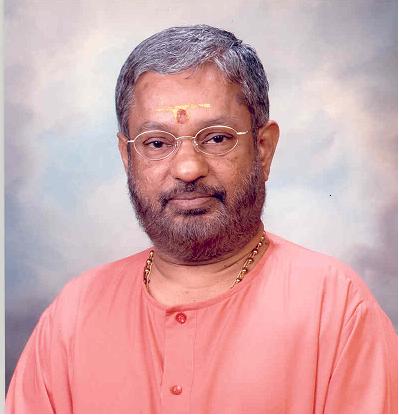Contribute
| Bhaja Govindam |
Venkat Pula
03/04/2010
Pujya Gurudev, Swami Chinmayananda credits the Kathopanishad as the very “Source Book†from which Veda Vyasa was inspired to compose his immortal work, the Bhagavad Gita. Kathopanishad is the story of a young spiritual aspirant, Nachiketas, as he travels on his own volition to the Lord of Death seeking to know the answer to life’s eternal question of what happens to the soul when man’s life had ended on this plane? Brilliant and relentless, he refuses to accept anything but the Absolute Truth. Seeing the sincerity of the student, the Lord is thus compelled to reveal verse by verse, life’s most ancient secrets in this profound philosophical work of art in written form.
Where: Chinmaya Mission Boston, 1 Union St, Andover, MA 01810
When: March 15 - March 19, 2010
Time: 7:00 pm - 8:30 pm
His talks are filled with wonderful insights into life and people respond instantly to his wisdom and affectionate nature. These talks are free and open to people from all backgrounds and all faiths.
Bhaja Govindam
Once in Benares Adi Shankara was going along with fourteen of his disciples when he overheard an old pundit repeating to himself Sanskrit grammar rules. Frustrated at what he thought was a waste of time on a futile intellectual effort, Shankara burst into the stanzas now popularly known as Bhaja Govindam.
Also known as Moha Mudgara, these thirty-one verses are one of the most popular devotional songs in Hindu culture. It is one of the seemingly smaller but, in fact, extremely important works of Adi Shankara. The fundamentals of Vedanta are taught in simple, musical verses so that even children can grow up in the melody of Vedanta.
Taking the opening stanza as a refrain or chorus to be chanted for emphasis at the end of each of the following verses, tradition has it that the immediately following twelve verses were given out by the Acharya himself. With his inspiration, each of his followers at that time contributed a stanza of his own. Shankara then composed the final four verses.
The Bhaja Govindam reveals to man the wretchedness of his present way-of-life, the horrors of his present values-of-life, and the dire consequences that await him if he continues to pursue the path of ego and desire. It paints an eloquent picture of the art of realization, and indicates to the sincere seeker the path of true realization.
The thirty-one stanzas have a crack-whip style and effect about them. There is no softness, no delicate consideration in the approach to correct the erring man. Rather, because of the urgency, Shankara lovingly reveals to his students the direct path to the ultimate goal. In Bhaja Govindam, we meet with a teacher who is softly advising his own beloved disciples in the secret chambers of his own sacred retreat.
The Bhaja Govindam is not addressed to advanced Vedantic students. It is instead addressed to seekers as a book-of-instruction to help them walk the path straight to their goal. The students are already pilgrims; the book contains ideas that can refresh them as they walk slowly under the crushing load of their own fatigue. This is a textbook of advice (Upadesa) and not a book of disputation (Vada). For an intelligent person, a sincere study of this poem can remove all his delusions (Moha).
Adi Shankaracharya lived in India sometime around the eighth century AD. He was not only a great thinker and the noblest of Advaitic philosophers, he was essentially an inspired champion of Hinduism and one of its most vigorous missionaries in India. Shankara gave back to India the life-giving philosophy of the non-dual Brahman of the Upanishads. An exquisite thinker, a brilliant intellect, a personality scintillating with the vision of the Truth, a heart throbbing with industrious faith and ardent desire to serve the nation, sweetly emotional and relentlessly logical, in Shankara the Upanishads discovered the fittest spiritual General. In a short span of about twenty effective years, Shankara revitalized Hindu religion at a time when it had been smothered within the enticing entanglements of the Buddhistic philosophy, and consequent decadence in Hindu society.
You may also access this article through our web-site http://www.lokvani.com/
